
Cities and the Climate-Data Gap
With the devastating effects of climate change already bearing down on the world’s urban areas, ambitious decarbonization and adaptation promises from municipal leaders could not come soon enough

With the devastating effects of climate change already bearing down on the world’s urban areas, ambitious decarbonization and adaptation promises from municipal leaders could not come soon enough
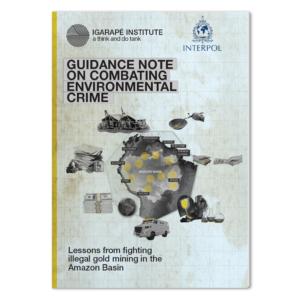
The Igarapé Institute, in a partnership with INTERPOL, releases the “Guidance note on combating environmental crime: lessons from fighting illegal gold mining in the Amazon Basin”. The publication offers practical guidance for law enforcement, criminal justice and environmental protection authorities to better understand the scope
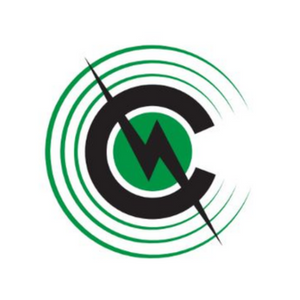
After seven straight years of record-breaking global temperatures, and nearly three decades since the first United Nations consort on environment and development, concern over the gathering climate emergency has finally gone mainstream
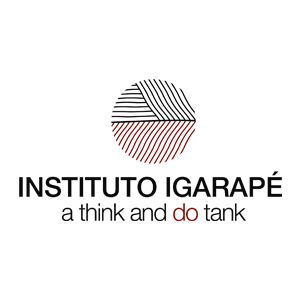
The new stories will be available on the interactive platform EcoCrime Data; the organization will also participate in panels The Igarapé Institute releases today (November 8th) at COP26 (Glasgow) ten news stories on its EcoCrime Data platform, each of which tells a distinct tale about
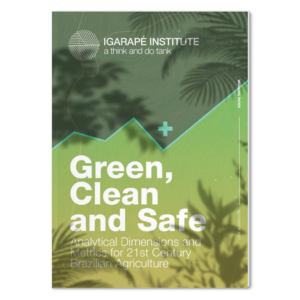
The Igarapé Institute has launched an initiative to enhance transparency, traceability and legal enforcement within complex commodities supply chains. It includes the development of new approaches to analytical dimensions and metrics — combining what for some is already consolidated compliance with good practices standards that

Prospect and Cast from Clay, this year’s awards partners, are pleased to announce the shortlist for the 2021 Think Tank Awards
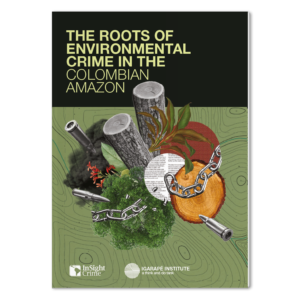
The publication is the first in a series of studies that highlight how environmental crimes harm ecosystems and communities

The notion that warmer weather can make us more violent is not new
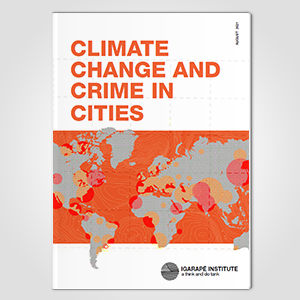
Climate change is already disrupting citiesaround the world. Continued greenhouse gas emissions and warming are intensifying heat islands, contributing to water shortages, rising seas, increasing flood-related risks and worsening pollution. With over two thirds of the population expected to live in cities by 2030, the

Local leaders told authorities that four boatloads of men arrived last week and threw tear gas canisters at the Maikohipi village, nestled in the Palimiu region in Brazil’s largest and best-known Indigenous reserve, Yanomami.

The COVID-19 pandemic is a stark reminder of how interconnected our fates are
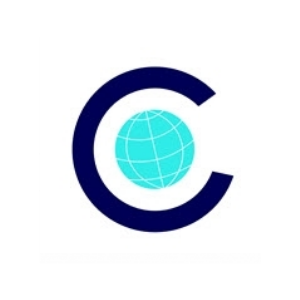
The Council’s Robert Muggah offers TEDxSaoPaulo five priorities to disrupt the crime and corruption that threatens not just Latin America, but the world

Daniel Pye’s interview with Igarapé Institute co-founder Robert Muggah about his organization’s Ecocrime data visualization platform, which combines visual storytelling with access to raw data on environmental crime in the Amazon, was the eighth most popular story with 45,000 views

Soaring gold prices have resulted in a massive ongoing invasion of the Indigenous reserve by gold miners who are well supported with monetary backing, heavy equipment and aircraft, research by think tank Igarape Institute indicates

As the world pressures Brazil’s Jair Bolsonaro to act, Robert Muggah of the Igarape Institute, a think tank in Brazil, has released a new too

This is one of a series of articles written by Young Global Leaders with action-oriented ideas to improve the state of the world by 2030

The Amazon Basin is fast approaching an irreversible tipping point
EcoCrime Data shows how land grabbing, illegal logging, wildcat mining and the illicit wildlife trade are damaging our climate. It also reveals the many social challenges emerging from environment crimes, including corruption, slavery and violence at the eight countries of the Amazon Basin, one
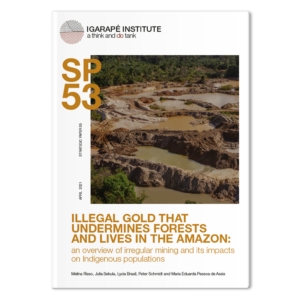
The Brazilian Amazon is rife with illegal gold mining operations, with 321 identified points of illegal, active and inactive mines arranged in the 9 states that comprise the Brazilian Amazon Basin. This devastation has a price — according to Brazil’s Federal Public Prosecutors Office, 1kg

Mongabay caught up with Igarapé Institute co-founder Robert Muggah this week to discuss Ecocrime, a new data visualization platform that combines visual storytelling with access to raw data on environmental crime in the Amazon.

All coastal cities are vulnerable to climate change

One of the many injustices of climate change is it hits the world’s poorest countries hardest
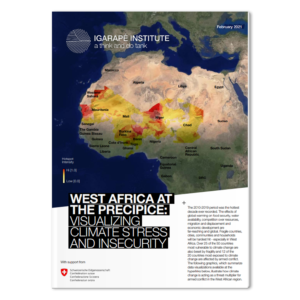
Instituto Igarapé preparou o boletim “Avaliando as relações entre as mudanças climáticas e a segurança na África Ocidental”
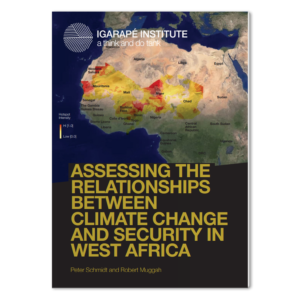
Read the latest Igarape Institute article, in which Robert Muggah and Peter Schmidt analyze these complex relationships.

The global green transition will accelerate – and not a moment too soon.

At the sharp end of the wedge, cross-boundary bodies like the Igarapé Institute, with the cooperation of Interpol and NGOs, track environmental crimes in the Amazon basin, with a view to bringing legal cases against those responsible.

JBS, the world’s largest meatpacker, is turning to blockchain to ensure the traceability of the tens of thousands of cattle it processes every day in Brazil, following intense pressure from both investors and activists over its environmental record.
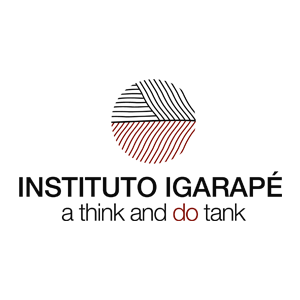
Este artigo analisa as práticas atuais em padrões e benchmarking para a agricultura de soja, pecuária e extração de madeira.
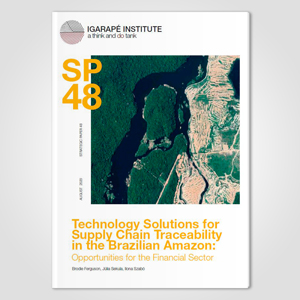
The Amazon is reaching a point that may be irreversible, in which its biome, and with it the global climate, will suffer irreparable damage, negatively impacting not only local communities, but also entire regions and industries. In this article, the Igarapé Institute analyzes challenges around

The Amazon Basin is approaching a dangerous tipping point.

O Instituto Igarapé utiliza cookies e outras tecnologias semelhantes para melhorar a sua experiência, de acordo com a nossa Política de Privacidade e nossos Termos de Uso e, ao continuar navegando, você concorda com essas condições.

